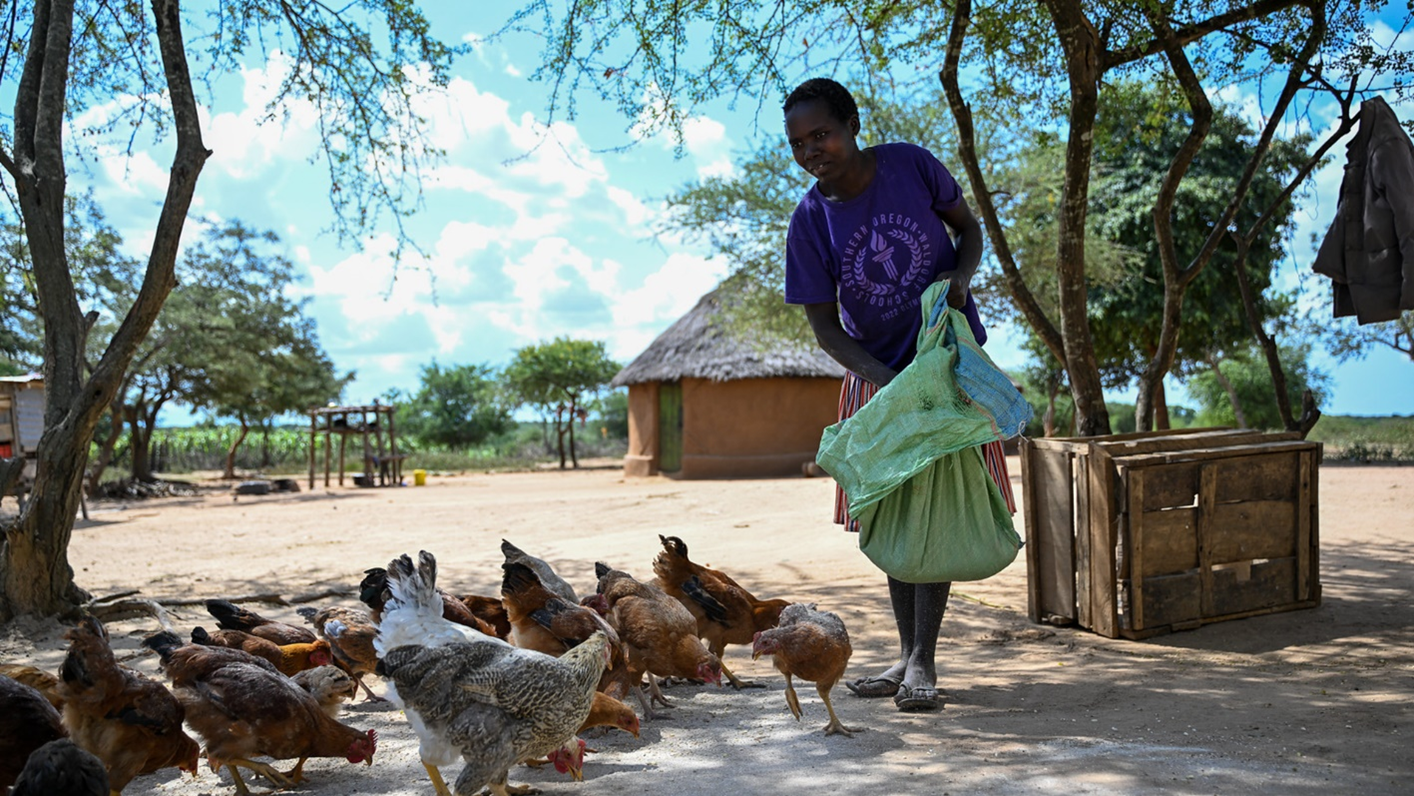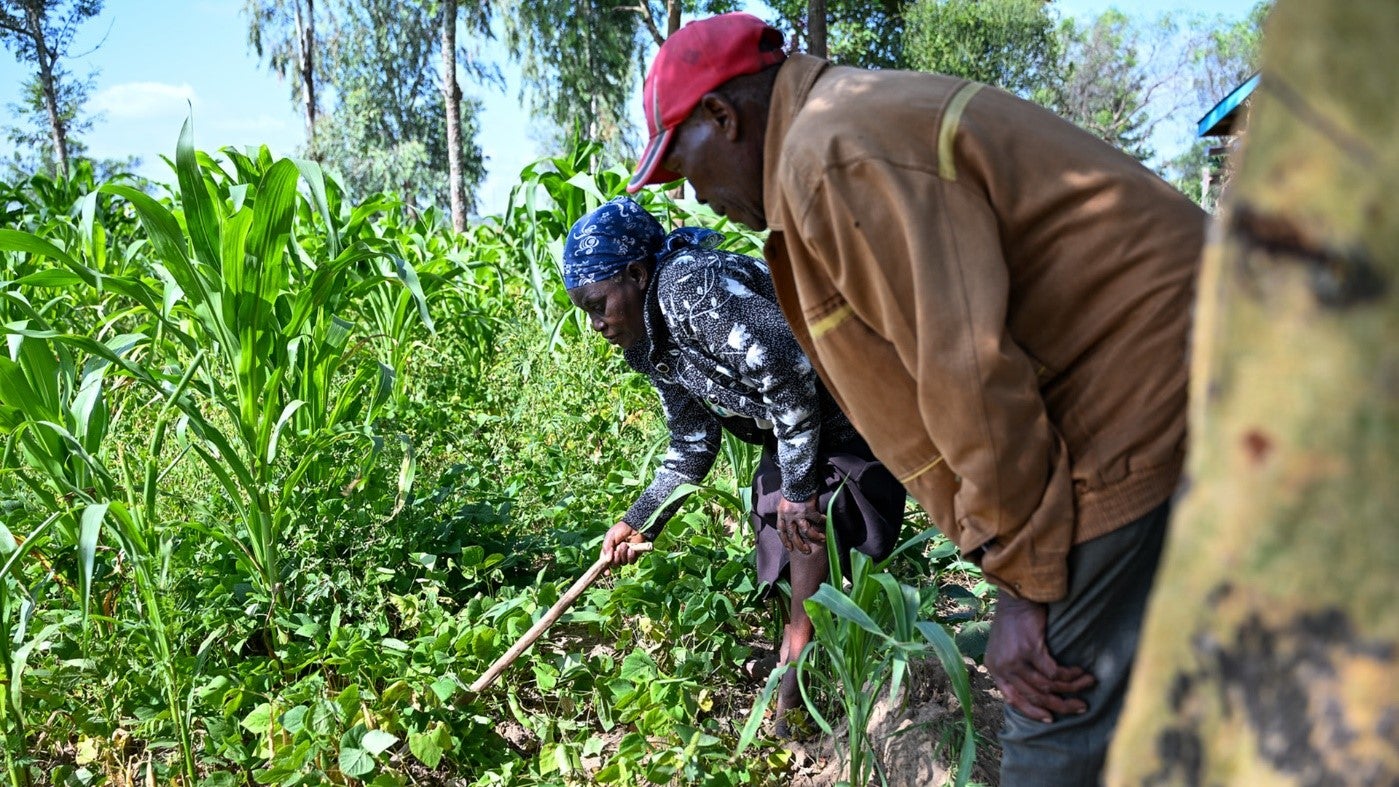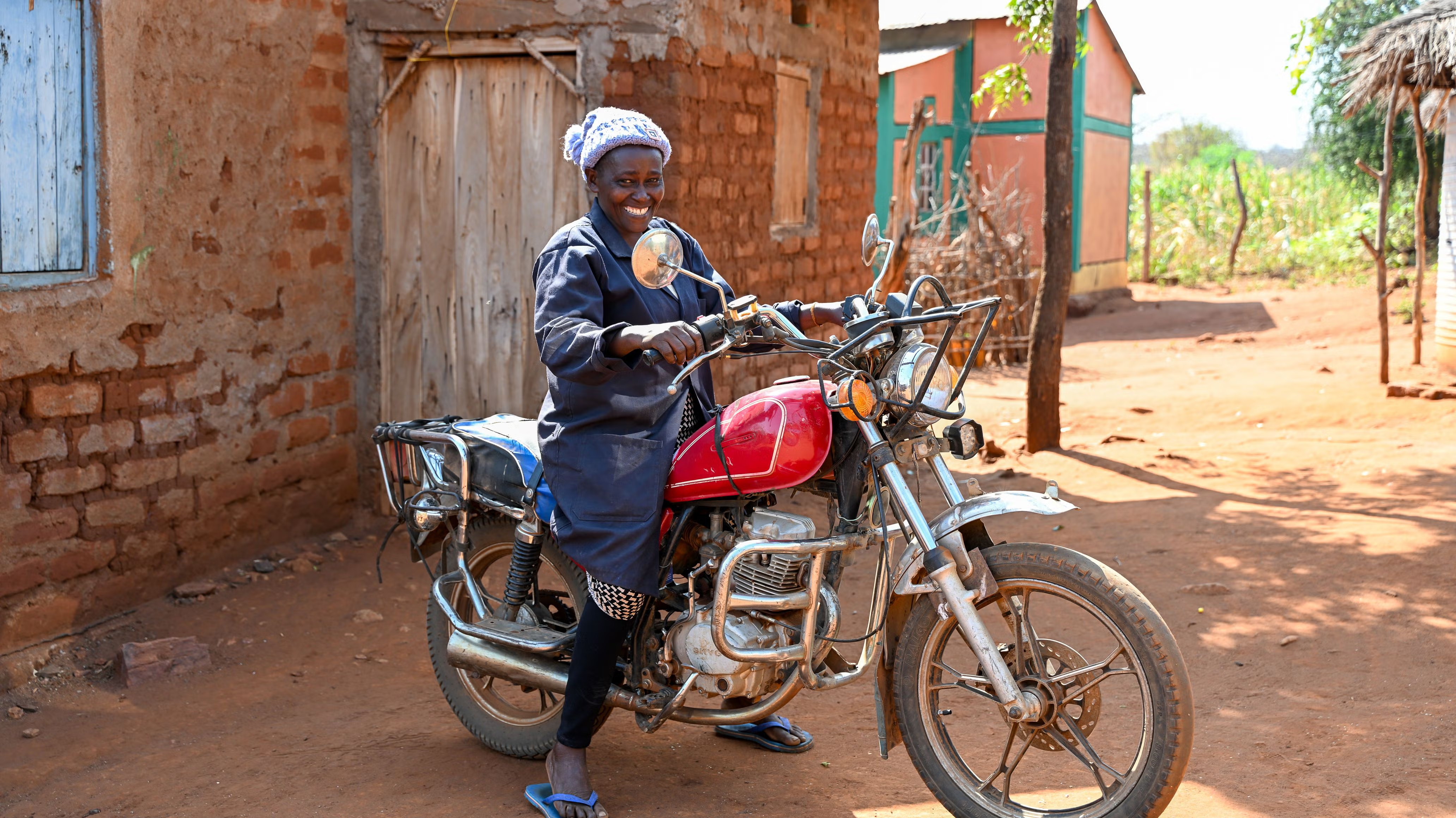Cultivating Change: Advancing Economic Opportunities for Rural Women in Kenya
Date:

Christine Krapiwan’s backyard is alive with the clucking of chickens, a testament to her transformation from a struggling farmer to a thriving entrepreneur. “I will never be the same again; my life has been changed in all dimensions,” she says as she feeds her chickens. Christine, the chairperson of Atulia Self-Help Group in West Pokot County, now leads an initiative focused on poultry feed processing, earning profits for her community.
The Women’s Economic Empowerment and Climate-Smart Agriculture (WEE CSA) project, implemented by UN Women Kenya in partnership with the Food and Agriculture Organization (FAO), has done more than teach technical farming skills to women like Christine—it has sparked a profound change in attitudes, personal discipline, fiscal management, and leadership. Since its launch in 2020, the initiative has impacted over 2,700 women farmers in three of Kenya’s Arid and Semi-Arid Land (ASAL) counties—West Pokot, Laikipia, and Kitui.
The project aimed to build capacity for climate-resilient farming practices, increase income and nutritional value, and strengthen women’s participation in agricultural policymaking. Many women experienced reduced conflict and newfound support from their husbands, a testament to the program’s broader societal impact.
Before joining the project, Christine had never viewed farming as a viable livelihood due to the harsh climate in West Pokot County. She and her family often struggled, hauling water under the scorching sun to irrigate their crops. Despite the physical toll and health risks, they persevered, with no other options to sustain their farming efforts. The sustainability of their livelihoods hinged on their unwavering perseverance and dedication to the land to build a brighter community.
Collaboration for Targeted Impact
The success of the WEE CSA project can be attributed to its close collaboration with local county governments. This ensured that resources were directed to areas in the most need, reducing overlap with other projects. Margaret Wangeci, a person with disabilities (PWD) and the chairperson of the New Vision Self-Help Group in Laikipia County reflected on how the program changed her community. “In the past, we faced many challenges and were marginalized from society’s development and daily affairs because we are abled differently. We felt like outcasts, which led to a lack of self-belief,” Margaret shared.

Due to their physical challenges, Margaret’s group faced isolation and marginalization. With the project's support, Margaret and her group have embraced goat farming and adapted climate-smart agricultural practices to fit their capabilities. This newfound sense of purpose and inclusion has empowered them to participate fully in their community’s economic activities.
Pius Butichi, the County Executive Committee member in charge of livestock in Laikipia County, emphasized the project's significance. “Empowering women isn’t just the right thing to do—it’s the smart thing to do,” he said, stressing the importance of a multifaceted approach that combined the efforts of UN Women, FAO, and the local government. Pius highlighted that the project is built for sustainability and designed to thrive even without constant supervision, ensuring that the benefits will continue long into the future.
Entrepreneurship in Action
Regina’s journey in Kitui County is a testament to how knowledge and collaboration can transform lives. Before the WEE CSA program, farming was merely a chore for her. “There wasn’t much reward in it,” Regina admitted. However, after gaining new insights into climate-smart agriculture, her kitchen garden, once neglected, is now brimming with vibrant produce, significantly boosting her family’s vegetable consumption.
Leveraging the Village Savings and Loan Association (VSLA) her group is a part of, Regina tripled her initial investment and opened an agro-vet shop - a much-needed resource in her community. “Farmers used to travel long distances, even risking crossing crocodile-infested rivers, to buy basic supplies,” she recounted. Her agro-vet shop has filled a gap in the local economy and inspired other women to pursue entrepreneurship.

The WEE CSA Project is a shining example of how empowering rural women with knowledge, resources, and support can lead to a lasting economic and sustainable future. By focusing on the unique challenges faced by women, the project not only addresses immediate needs but also fosters resilience against the growing challenges posed by climate change. This empowerment enables women to become key agents of change, contributing significantly to sustainable practices and community well-being.